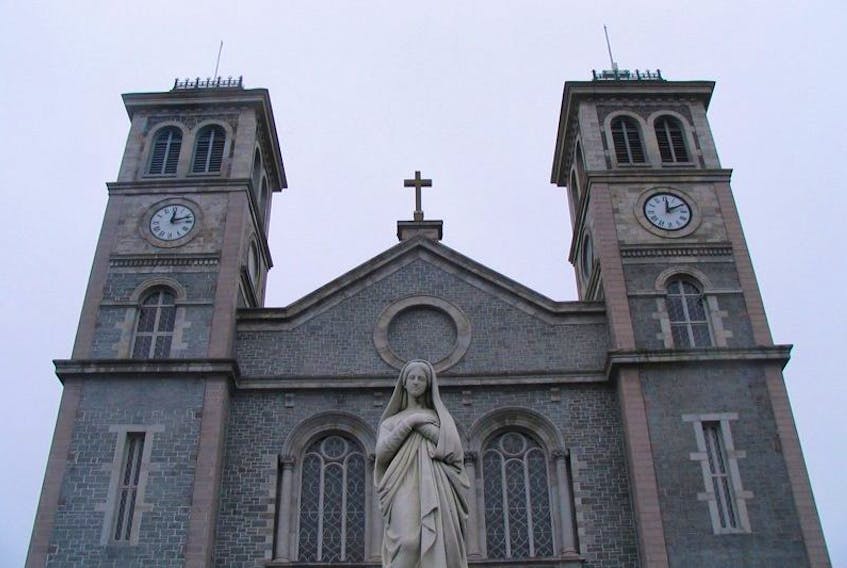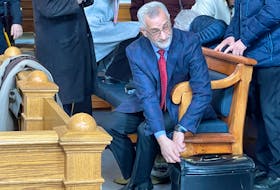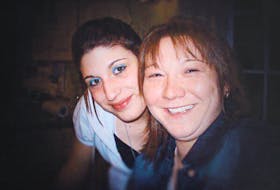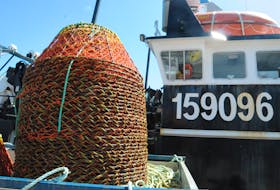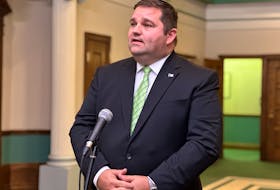St. John’s Catholic Archbishop Peter Hundt isn’t sure what publishing a list of priests convicted of sexual abuse would accomplish as they are already a matter of public record.
“I mean nobody needs to say the name Jim Hickey or John Corrigan — everybody knows those names,” Hundt said in response to whether or not he would publish a list of credibly accused prisets, as has been done in the U.S. and Vancouver. Those two convicted priests were among the most infamous cases of clergy abuse in Newfoundland and Labrador.

Other priests who weren’t convicted are not about to be exposed by the diocese, which is nevertheless watching precedents set by archbishops’ actions elsewhere.
Vancouver Archbishop Michael Miller set an example in November when he released names of nine priests after a file review by a committee made recommendations on cases stretching back to the1950s. Other priests are known but weren’t named due to privacy and legal concerns, but the Vancouver Archdiocese is working on overcoming those restrictions.
“This is a complex legal issue,” Hundt said in an interview to discuss the issue of publicly naming priests as credibly accused.
“We live in a society where the presumption of law is that a person is innocent until proven guilty. Archbishop Miller has released those names he was legally allowed to release, and he has a further review underway regarding the legal constraints involved in publishing further names.”
Hundt said those clergy who have been found guilty in the past of sexual abuse within his archdiocese involving a minor are either deceased, laicized, and or no longer in an active ministry.
Advocate Gemma Hickey, who had founded the Pathways non-profit to speak for victims of clergy abuse and has been networking with victims such as themselves across the country, wrote Hundt calling for a list of credibly accused priests to be released.
Hickey has also called on the church to waive any confidentiality agreements that would prevent victims from speaking about their abusers.
Hundt, who replaced long-time archbishop Martin Currie about a year ago, said he’s not aware of any confidentiality agreements, but expects they do exist.
“If such agreements do exist, those with whom they were made are welcome to approach me about the possibility of having them waived,” Hundt told The Telegram.
That means that each person seeking to have those agreements waived would have to meet with Hundt with the requests examined on a case-by-case basis.
“So, I am certainly open to that, but it has got to be individually,” Hundt said.
The caveat is that if the agreements are with a third party — the priests accused of the abuse — that negotiation would have to take place between those two parties, victim and priest.
And when asked about what happens when the agreement was with priests now dead, Hundt said that was a good question and he hadn’t thought of that.
Newer allegations — which when they are brought to the church typically are related to historical abuse — are not subject to confidentiality agreements.
“I guess part of it would have been to avoid scandal.,” Hundt said of the reasons why the agreements ever existed.
For a time in the past, he noted it was thought that a stern talking to would solve the problem and that the priests could be sent for treatment to “cure” them and they could then resume active duty. Obviously, that didn’t work.
Since 1990, the diocese has had a policy for dealing with sexual abuse cases, as well as prevention safeguards, and those are being reviewed to insure they are up to date because of new family law and a change in the guidelines of the Canadian Conference of Catholic Bishops.
Under the policy, a bishop’s delegate investigates an abuse allegation while working with a multidisciplinary committee of experts such as psychologists and lawyers who review the file. There is also a requirement on the church to report any incidents involving minors to police.
“To my knowledge, there are presently no criminal charges laid against or police investigations being pursued regarding any priest administering within the diocese,” Hundt said.
Hundt said he’s interested in seeing what Miller does next in the Vancouver Archdiocese in terms of publishing other priests’ names.
“We’d have to wait and see what actually happens there. It’s a complex issue where you start publishing names where it’s not a case where they have been found not guilty in court… It would be something I would have to look at with the bishop’s delegate and with the multidisciplinary committee and say 'how does this apply in this province and this archdiocese?'” he said.
As for what he can say to victims like Hickey and others who are demanding the church be proactive, Hundt said, “I am not sure what we can say other than we are trying to do what’s just for all involved.
“That’s about all we can say — we need to listen to them be respectful of their situation and be concerned for their welfare. And we have to take those things into consideration in discerning what is the right way forward.”
Past scandals involving priests like Hickey and the taint of the Mount Cashel orphanage sexual abuse scandal — although it involved the Catholic lay order Christian Brothers not priests — casts mistrustfulness on the church that’s never waned.
“It’s created an incredible wound. There are the direct victims, but I don’t know if there’s any Catholic who isn’t in some way a victim of this,” Hundt said.
In his previous Archdiocese of Corner Brook and Labrador, Hundt said at a gathering where the low numbers at mass was a topic of conversation, one person commented, “Well you know, it’s got to do with the scandal, but you don’t want to get into that.”
“I said ‘Well I think we do need to get into that. And for the next 20 minutes, we had a very constructive sharing of emotions and one person got up and said, ‘Bishop we haven’t lost our faith, we’ve lost our trust.’
“And I think that summarizes it a lot. We’ve lost our trust. And how do you get trust back once it is lost?”

For Hickey, who walked across the island to bring awareness to clergy abuse, the Catholic church in Canada needs to do a lot more towards reconciliation, starting with the precedent set by Miller, and now the Jesuits of Canada which, according to the Globe and Mail newspaper, is preparing to publicly release a list of its priests that have been credibly accused of sexual abuse.
“Generally, credibly accused means that even without a criminal conviction, a full review of church records would deem whether or not an accusation is credible,” Hickey wrote in a letter to Hundt. “I know for a fact that your diocese has records that contain this type of information. Will you be following the example of Archbishop Michael Miller in Vancouver and publish the names of predator priests in your diocese to ensure public safety?”
Releasing the names is a necessary step to more transparency, Hickey said.
“Canada has been behind in terms of other places in North America,” they said.
“This is a global crisis — the biggest crisis of faith and the church is not handling it properly. No matter where I have gone in Canada, someone has spoken to me about where priests have been shuffled around and are still in active duty. This is why I am calling on the bishop and bishops across the country to release the names.”
As for Hundt proposing one-on-one examinations of the confidentiality agreements, Hickey said that poses a trigger of painful memories for the victims, let alone the third party agreements which they would, according to the policy, have to negotiate dissolving with their abusers. Hickey said no victim would feel comfortable going ahead with that scenario.
“The onus is on the church causing the harm to do the right thing,” Hickey said, noting in the past the onus has been on the survivors to approach the church and the media and that's wrong.
Hickey said it’s important the Archdiocese of St. John’s begin working on a list whether the public is aware of which priests were convicted or not, and that a review of the files should be conducted by an independent third party.
Hickey said a reason for forming Pathways was being contacted by the church to find out their own file was lost and the church wasn’t aware which priest was involved, and so it needed a copy of the settlement.
“You never really recover from being abused by someone representing God. You just learn to live with it,” said Hickey, who is part of a nation-wide network Advocates for Clergy Trauma Survivors (ACTS Canada) of Indigenous and non-Indigenous survivors demanding more transparency and accountability from the church.
On Tuesday, Pope Francis abolished the pontifical secrecy rule used in clergy sexual abuse cases, paving the way for more co-operation with police agencies with more access to documents.
The Vatican instruction also gives more voice to victims.
“The person who files the report, the person who alleges to have been harmed and the witnesses shall not be bound by any obligation of silence with regard to matters involving the case,” the pope’s order said.
The age range of child pornography according to the Vatican, was also raised from 14 to 18 — the Catholic church has its legal system revolving around canon law.
In 2017, the Edmund Rice Christian Brothers North America published a list — as a requirement of settlement — of then current, former and deceased brothers who were identified in at least two sexual abuse claims filed as proofs of claim in the bankruptcy matter of The Christian Brothers’ Institute. The list, which included brothers Ronald Lasik, Francis Carroll and John Murphy who were associated with Mount Cashel, contained a disclaimer: "It is important to note that the merits of most of the claims were not tested."
Twitter: @BarbSweetTweets
MORE BY BARB SWEET:

